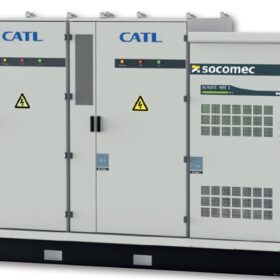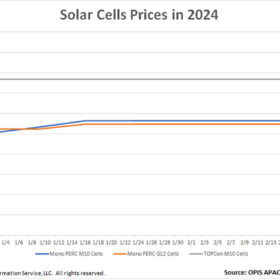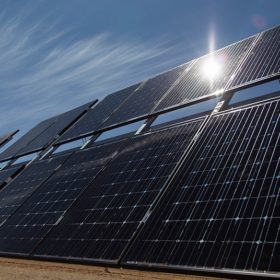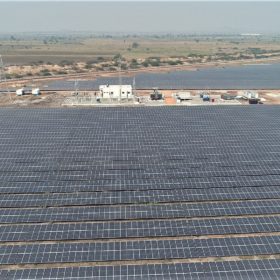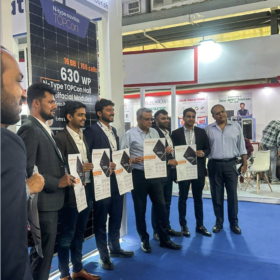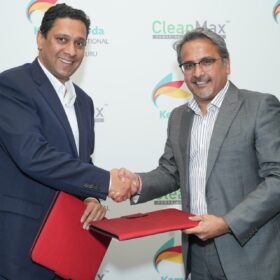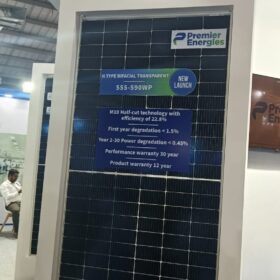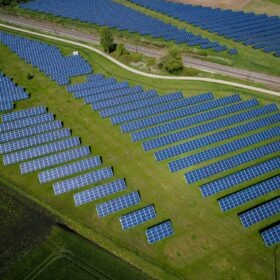Socomec releases new modular energy storage system
Socomec says its new modular energy storage system includes a converter and up to six battery cabinets. At maximum capacity, it can store 1,116 kWh.
Solar cell prices hold steady as market weighs feasibility of increasing prices
In a new weekly update for pv magazine, OPIS, a Dow Jones company, provides a quick look at the main price trends in the global PV industry.
NTPC declares commercial operation of 70 MW solar plant in Rajasthan
NTPC has declared that NTPC REL’s first solar project at Chhattargarh in Rajasthan has started commercial operation of 70 MW. With this, NTPC Group’s installed capacity has reached 73,958 MW.
IndiGrid completes acquisition of 300 MW solar power plant
IndiGrid’s solar portfolio crosses 1 GWp capacity with the acquisition of a 300 MW solar plant in Rajasthan.
The rise of green finance: Financing the future of renewable energy in India
India has witnessed a surge in solar and wind energy projects, backed by investments from both domestic and international sources. Green finance plays a pivotal role in funding these projects.
Navitas Solar launches n-type TOPCon bifacial modules
Navitas Solar has launched its latest n-type TOPCon bifacial modules with power outputs from 560 W to 630 W per panel and efficiency of 21.7% to greater than 22%.
CleanMax to develop 45.9 MW solar-wind project under PPA with Bangalore International Airport Ltd
Clean Max Enviro Energy Solutions (CleanMax) will develop a 45.9 MW solar-wind power project for consumption by Bangalore International Airport Ltd (BIAL).
GameChange Solar to expand US production of PV trackers to 35 GW
GameChange Solar says it will expand US production of solar trackers to 35 GW, supplying systems with 70% domestic content, and potentially increasing to more than 85%.
Premier Energies unveils 555-590 W TOPCon bifacial modules
Premier Energies n-type TOPCon bifacial glass-backsheet modules are available in power outputs of 555 W to 590 W with efficiency up to 22.83%.
BloombergNEF says global solar installations could hit 574 GW this year
BloombergNEF says in a new report that developers deployed 444 GW of new PV capacity throughout the world in 2023. It says new installations could reach 574 GW this year, 627 GW in 2025, and 880 GW in 2030.
